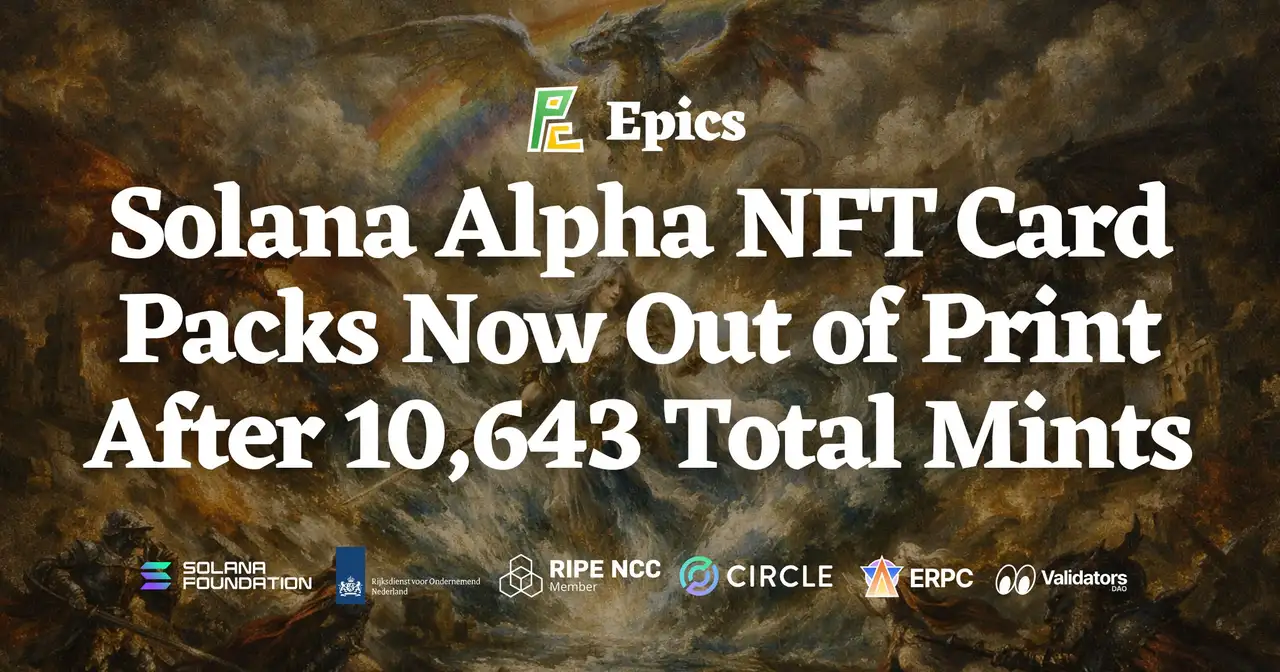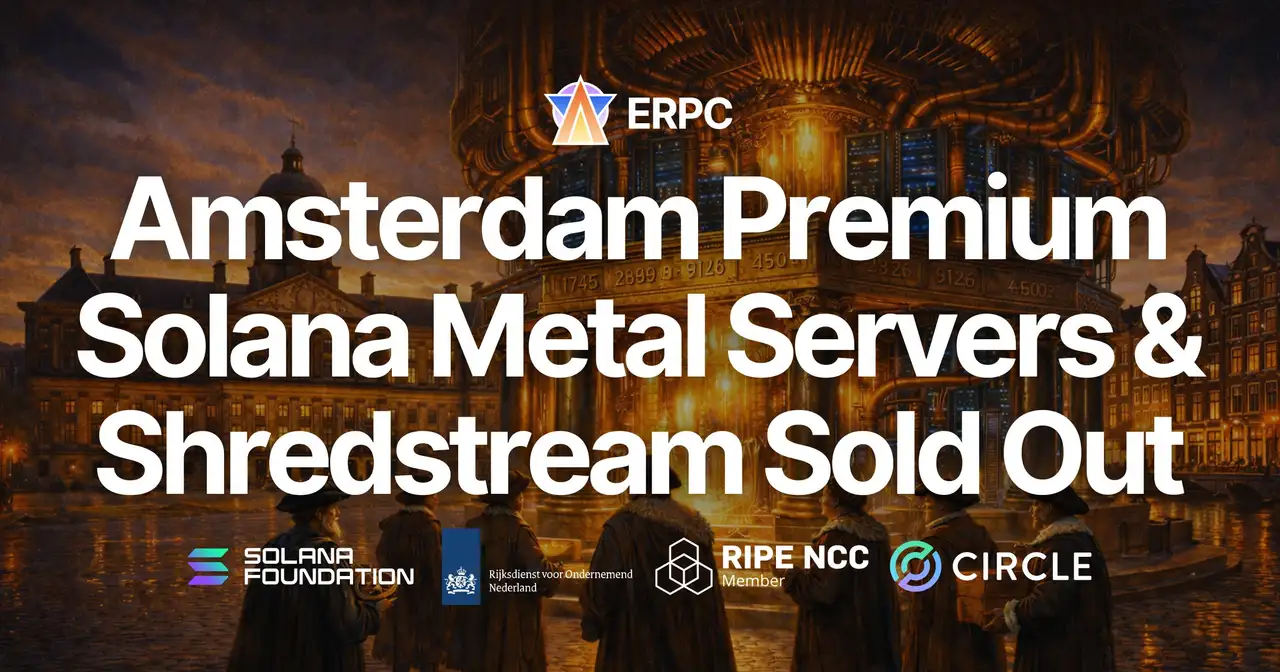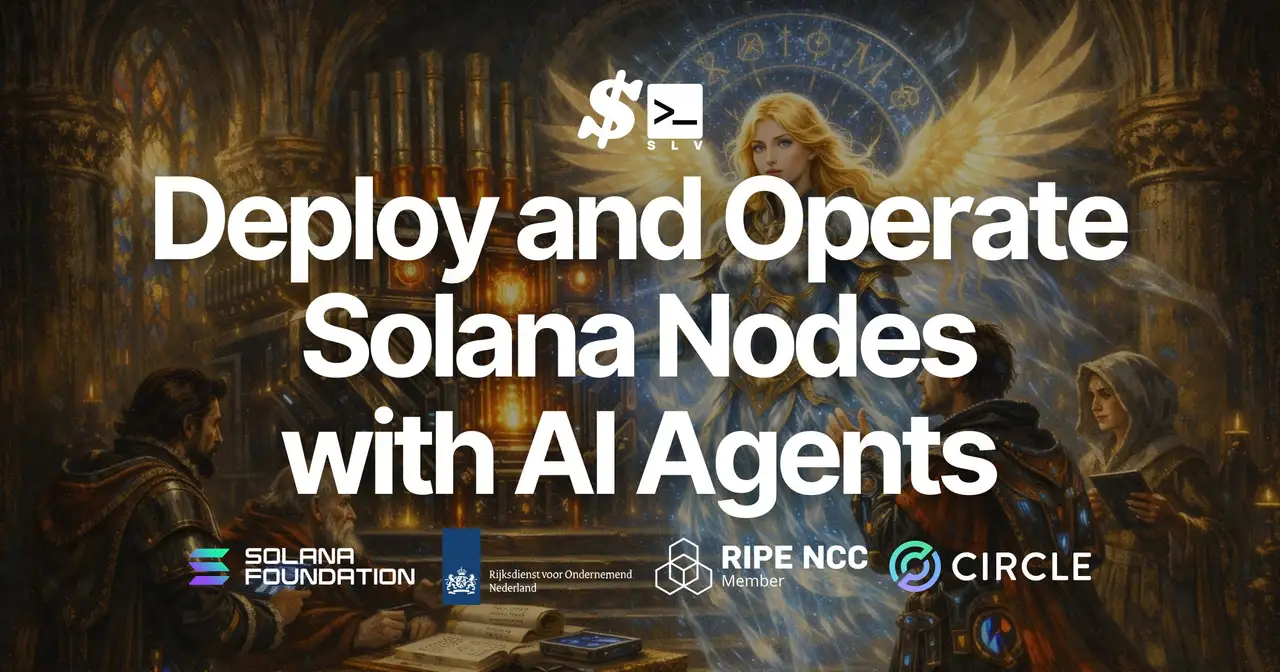ERPC Reduces Price of Solana Dedicated gRPC and Shredstream “EPYC Plan” to €980/month, Achieving Higher Efficiency through In-House R&D
ERPC Reduces Price of Solana Dedicated gRPC and Shredstream “EPYC Plan” to €980/month, Achieving Higher Efficiency through In-House R&D
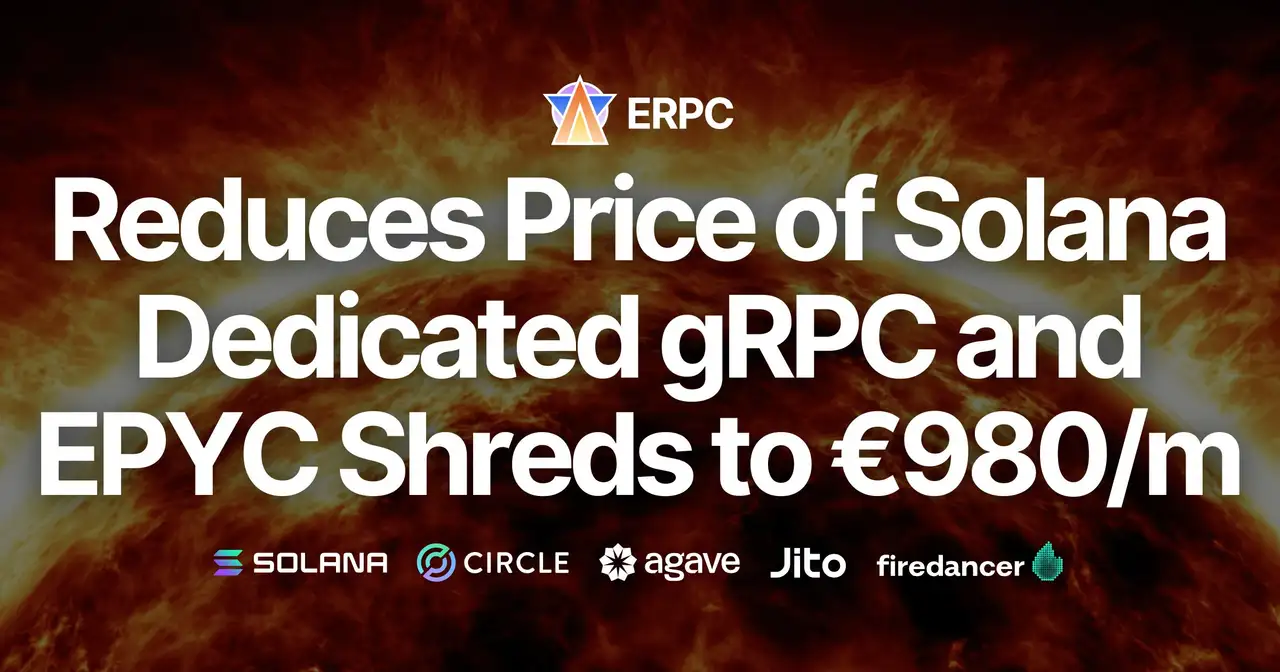
ELSOUL LABO B.V. (Headquarters: Amsterdam, The Netherlands, CEO: Fumitake Kawasaki) and Validators DAO, the operators of ERPC, have reduced the monthly price of the Solana dedicated gRPC and Shredstream “EPYC Plan” to €980/month.
Through continuous in-house research and development, ELSOUL LABO and Validators DAO have established a high-efficiency and energy-saving architecture. The improved design maintains equivalent performance while reducing cost, making the highest-grade configuration more accessible to developers and infrastructure providers.
Background: Establishing a High-Efficiency Architecture through R&D
ERPC has refined both hardware tuning and software-layer optimization, improving memory efficiency in AMD EPYC environments.
This allows the same performance to be achieved with fewer resources, successfully reducing power consumption and hardware cost.
As a result, the overall configuration achieves high stability and operational efficiency while maintaining performance for real-time streaming and transaction processing workloads.
Technical Improvements: Communication Architecture and Latency Optimization
Dedicated gRPC Nodes
Normally, gRPC endpoints do not hold stake, meaning their Shreds reception priority is lower and the node tends to fall behind the latest block.
To address this, ERPC applies a configuration that feeds Shreds separately through a relay located in the same network as the Jito Block Engine.
This enables each dedicated gRPC node to reliably receive the most recent block data and maintain consistent synchronization without delay.
This optimized structure is now applied by default across all dedicated gRPC nodes.
This optimized structure is now applied by default across all dedicated gRPC nodes.
Dedicated Shredstream Metal EPYC
Shredstream offers ultra-low latency through UDP communication, but maintaining stability during real-time spikes has been a challenge.
The EPYC configuration leverages multi-core and multi-memory-channel architecture to sustain stable communication even under transient spikes.
By fully utilizing parallel thread performance, ERPC has achieved a configuration that remains stable during fluctuating real-time network loads while maintaining the lowest possible latency.
Stability through Dedicated Environments
Shared environments can be affected by connection limits or load from other users.
The EPYC plan eliminates these issues by providing a fully dedicated configuration without connection restrictions, ensuring stable performance even during spikes.
This guarantees consistent throughput and response time during long-term RPC and stream operations.
Synergy with Dedicated Metal Servers
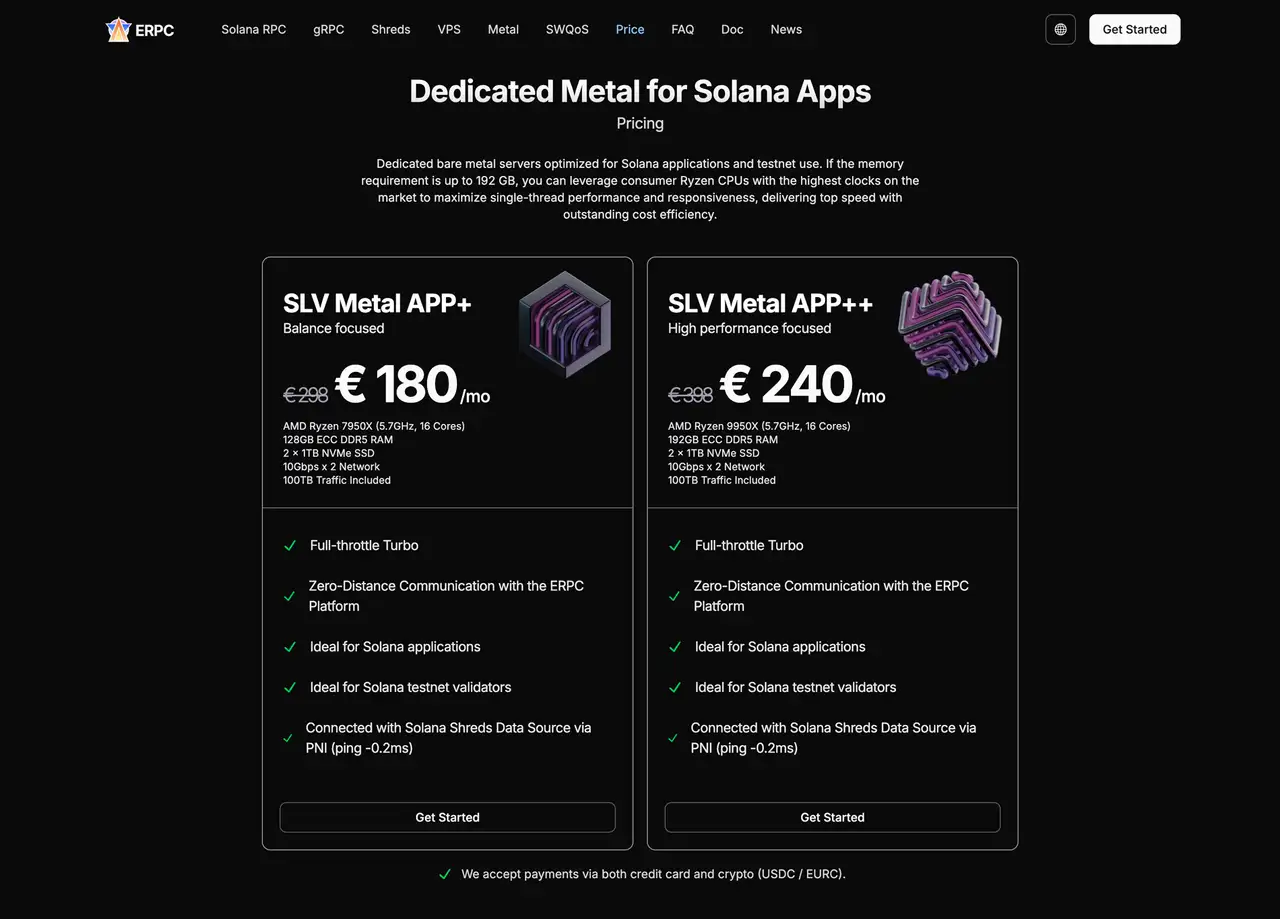
By deploying dedicated bare-metal servers within the same network as Solana endpoints, ERPC eliminates external network communication that can become a latency bottleneck.
The ERPC network is connected to Solana’s private optical-fiber network “DoubleZero,” where Shredstream, gRPC, and SWQoS endpoints operate over the same dedicated backbone.
This zero-distance architecture minimizes physical distance and route variation, enabling consistently stable and high-speed communication.
New Pricing Lineup
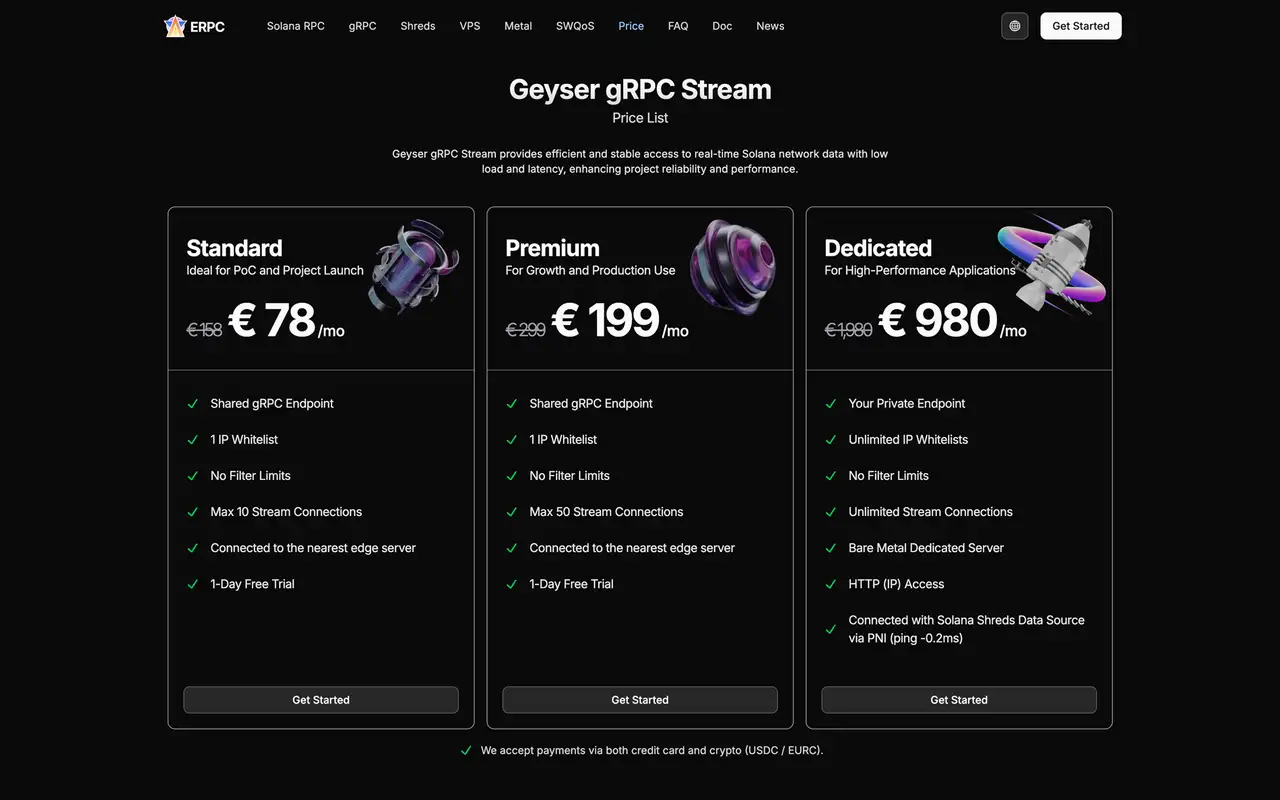
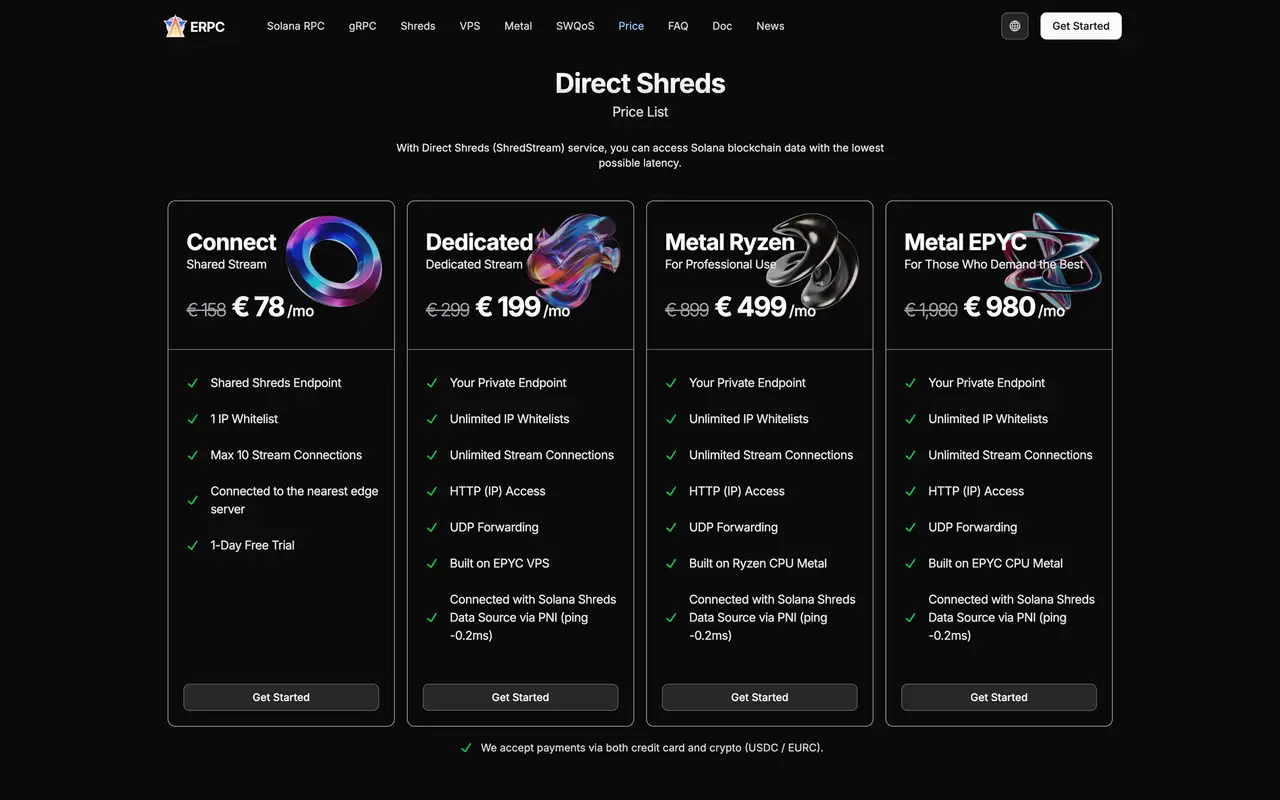
With this price revision, both Shredstream Metal EPYC and dedicated gRPC nodes are unified at €980/month (excluding tax).
Each plan is designed as ERPC’s highest-grade configuration, optimized for professional use where performance, stability, and low latency are critical.
Existing customers will automatically receive the new pricing from their next renewal.
Challenges Addressed by ERPC and Validators DAO
- Transaction failures and latency fluctuations in RPC environments
- Performance throttling by many infrastructure providers
- Significant impact of network distance on communication quality
- Difficulty for smaller projects to access high-quality infrastructure
ERPC and Validators DAO built this platform during the development of the open-source Solana NFT card game project Epics DAO, after recognizing the lack of readily available high-performance Solana development environments.
The knowledge and infrastructure gained through that effort have become the foundation for ERPC and SLV.
The knowledge and infrastructure gained through that effort have become the foundation for ERPC and SLV.
In mission-critical areas such as finance, even small delays or errors directly affect the user experience.
Because Solana’s validator and Web3 infrastructure are highly distributed, many projects have faced latency and stability challenges.
Because Solana’s validator and Web3 infrastructure are highly distributed, many projects have faced latency and stability challenges.
ERPC and Validators DAO provide the high-performance foundation needed to overcome these barriers, contributing to both developer and user experience improvements across the Solana ecosystem.
- ERPC Official Website: https://erpc.global
- SLV Official Website: https://slv.dev
- elSOL Official Website: https://elsol.app
- Epics DAO Official Website: https://epics.dev
- Validators DAO Official Discord: https://discord.gg/C7ZQSrCkYR


